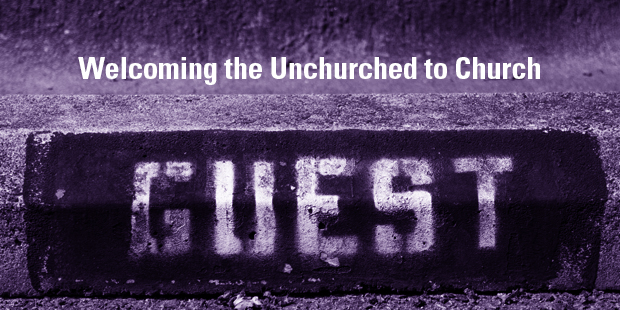
It Takes This to Truly Be a Church for the Unchurched
When people hear that Mecklenburg Community Church (Meck) experiences more than 70% of its growth from the unchurched, their mouths drop open. They want to know what we do to achieve such a ridiculously high percentage. There’s obviously a host of things we do, but I tend to answer in one simple way.
I say that everybody talks about being “about” the unchurched, but we really are. In fact, those who hang around Meck from other church backgrounds almost always comment (after even just a few weeks), “Wow, you guys really are after the unchurched.”
The reality is that most churches have outreach in their rhetoric, but not in their reality. The decisions we make at Meck to stay focused on our mission would floor most church leaders, as they fly in the face of raw “numbers” that we could have obtained. Yes, we are a very large church, but we would be so much larger if we focused on transfer growth.
So what does it mean to make the countless decisions we make for an unchurched guest who has been invited by a friend (which is the number one way the unchurched come into our orbit)?
This past weekend I received an email from a member of our staff following our Saturday night service describing the experience a friend of theirs had at Meck when attending for the first time that evening. I offer it in the hope that it will be eye opening to what it really means to be a “church for the unchurched.”
Here’s the email:
I had first-time guests here tonight… He is a Christmas/Easter Catholic and she (raised agnostic) said she never went to church before she married him. I was SO curious to see what they would say about the service.
They were super kind about the whole experience. They mentioned the building and how they were taken aback but yet completely at ease coming in with what appeared to be other “normal people who seemed like they weren’t being dragged to church.” They mentioned being greeted and thought it was just because they were guests, but then realized everyone was getting the same kind of greeting (that really stood out to them). They left the kids with the sitter but were asking me about MecKidz because they saw a “ton of kids running ahead of their parents to… church? Are they giving them free candy or something?” (Which, of course, was a great conversation about MecKidz). They stopped in The Grounds… and said they loved the coffee and the whole vibe. They loved the music and mentioned the diversity on stage… he is Iranian so he “saw himself” up there. I asked him about the music and they said while they didn’t know any of the songs they really enjoyed watching people who did know the music engage it. They of course asked if the band was hired and where they played during the week (ha!). They loved the “personal-ness” of the whole service.
He told me he’s never been to a church service where he didn’t feel guilted into giving money. He couldn’t believe we’d say “don’t give” and then not say “but give to this” later! He told me he actually leaned over to his wife when you started [the message] and said, “How long before he starts talking about money?” He was shocked you didn’t! He said about 10 minutes into the message he forgot to even be listening for it.
I asked him how he felt about the message and he said what I can only attribute as the highest compliment I can give. I’m paraphrasing, but it was something like this: “I knew the message was about me – I mean he said that right at the beginning. And while I should’ve maybe felt awkward or uncomfortable about that, I kind of felt… cared for. I mean, it’s like he said, ‘If you’ve got something you think I need, how much do you have to hate me not to tell me about it?'”
Your stature and being a “man’s man” made him feel like this “Jesus/church stuff” wasn’t a big emotional crutch (which is the conversation we have regularly). And then before they left, they both turned to me and said, “Thank you for inviting us.”
Wowwww.
I forgot… he also said “going to church, you expect to hear about God; I just didn’t expect it to be so compelling.”
I could tease out the various dynamics this person experienced into teaching points, but I think you can do that yourself. The point is that the ultimate test of whether you are a church for the unchurched is simple:
… if an unchurched person thinks you actually are.
> Read more from James Emery White.
Want to know more about becoming a “church for the unchurched?” Connect with an Auxano Navigator to learn more.

Tags: Church for the Unchurched, James Emery White, unchurched














